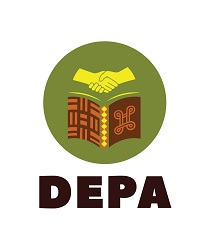The DEPA project has attracted additional funding, to expand projects in some of our research locations.
Creative Economy
This impact and engagement project has been funded by the Arts and Humanities Research Council titled "Embedding and Enabling Creative Economy in Marginalised Societies: Creative Skills for Peace." The aim is to enhance human resource capacity by upskilling young artists for a sustainable peace economy. This new project will be conducted in collaboration with the Open University – UK (Parvati Raghuram), University of South Africa (Ashley Gunter), and Midlands State University, Zimbabwe (Tendayi Marovah).
Both the African Union and the UN International Year of the Creative Economy for Sustainable Development 2021 underscore the importance of fostering sustainable and inclusive economic growth. They emphasize providing opportunities, benefits, and empowerment for all, as well as promoting networking and the sharing of best practices and experiences.
Integrating cultural heritage and local art into the creative economy through skills development can forge sustainable peace economies. Such economies have the potential to mitigate the structural inequalities that emerge from (pre-)conflict situations and enhance the livelihoods of individuals. The research team has collaborated with new partners from the creative industries and artists in both the UK and Africa to delve into how such an enabling environment can be established.
The project looks into the exploration and creation of sustainable local peace economies. It also investigates how these can be incorporated into peace education by embedding creative, soft, and entrepreneurial skills. The training is geared towards fostering peace and sustainable development, and ensuring these communities and their youth can connect with new stakeholders, artists, and cultural, creative, and heritage organisations on a national, regional (Southern Africa), and international (Southern Africa – UK) scale through networking. Furthermore, one of the project's goals is to leave a lasting impact by creating and depositing enduring educational materials. These resources will empower future generations to tap into the economic potential of both tangible and intangible heritages.

